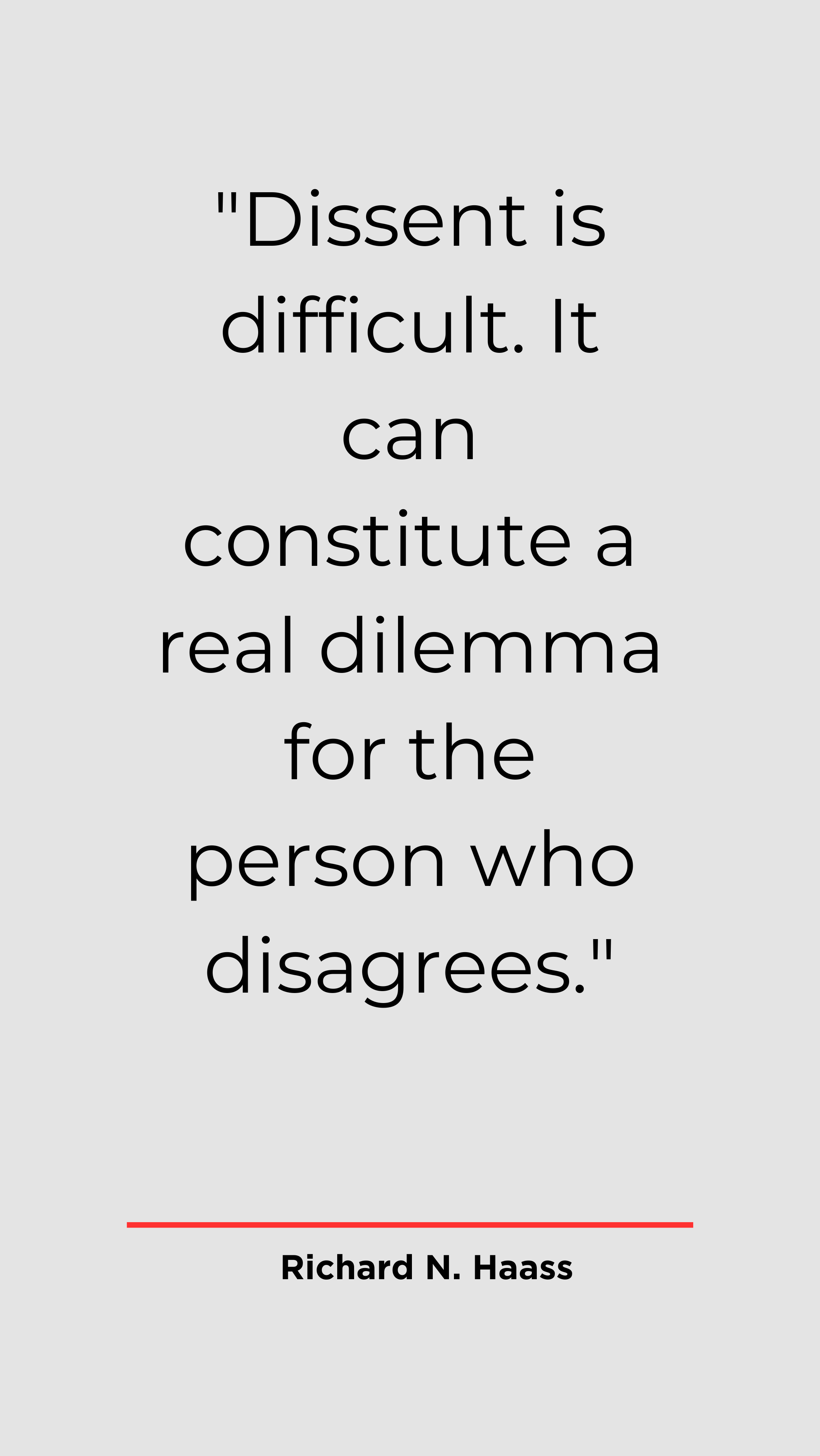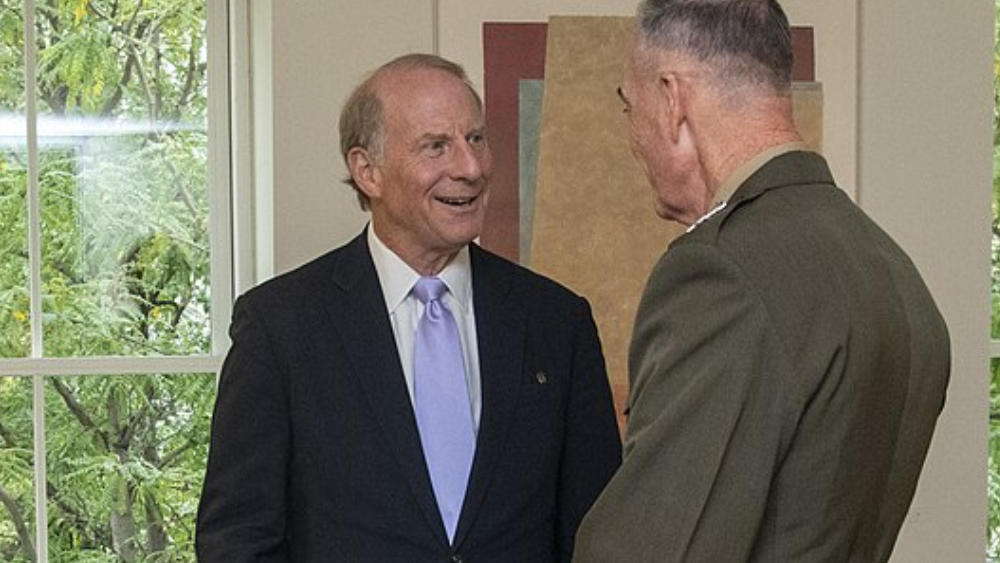Richard N. Haass, born on July 28, 1951, in Brooklyn, New York, is a distinguished American diplomat, author, and foreign policy expert. As the President of the Council on Foreign Relations (CFR), he has played a pivotal role in shaping America’s approach to international relations and global challenges.
Early Life and Education
Richard Haass’s early life was marked by a deep and abiding interest in international affairs and diplomacy. His academic journey, which served as the foundation for his distinguished career, began at Oberlin College. Here, he first honed his intellectual curiosity and fascination with global politics.
Haass pursued international relations at Oxford, excelling as a Rhodes Scholar and earning a Bachelor of Science in economics. This experience broadened his global perspective and laid the groundwork for his future endeavors. At Harvard, he earned a Master of Arts and a Doctor of Philosophy in international relations, nurturing his intellectual passion. His academic achievements demonstrated dedication to international politics, marking the start of a remarkable career in diplomacy and foreign policy.
Richard N. Haass: Government Service and Diplomatic Career
Richard N. Haass’s journey into government service and diplomacy began with his entry into the U.S. State Department during the Carter administration. Here, he embarked on a path that would come to define his illustrious career. Within the department, Haass assumed various roles that centered on policy planning and analysis. His early foreign policy work swiftly earned him recognition as a rising star in diplomacy, displaying intellect in international relations.
Haass’s government service served as a critical launchpad for his subsequent influential diplomatic career. His dedication to global politics and policy formulation made him a trusted advisor and strategist in the field. Richard N. Haass’s early State Department years honed his expertise, offering insights into U.S. foreign policy and shaping his diplomatic journey.
National Security Council and Middle East Affairs
Richard Haass’s career took a significant turn when he assumed the role of Special Assistant to President George H.W. Bush and Senior Director for Near East and South Asian Affairs on the National Security Council (NSC). This pivotal position placed him at the heart of U.S. national security and foreign policy decision-making. During his tenure on the NSC, Haass played a central and influential role in shaping U.S. policy during the Gulf War and the complex Middle East peace process.
Haass’s expertise in international relations and foreign policy shone as Senior Director for Near East and South Asian Affairs. He offered crucial insights and advice with far-reaching consequences for both the United States and the Middle East region. His role in high-stakes diplomacy showcased his skill in complex geopolitics and dedication to advancing U.S. interests and global stability. Richard Haass’s contributions shaped American Middle East policy, enhancing his reputation as an influential diplomat with a key impact.
Richard N. Haass: Director of Policy Planning
In a pivotal move during the George W. Bush administration, Richard N. Haass was appointed as the Director of Policy Planning under Secretary of State Colin Powell in 2001. This position was a crucial one within the U.S. State Department, as it tasked Haass with the responsibility of offering strategic guidance on foreign policy and international affairs. His appointment showcased his reputation as an experienced diplomat with profound global politics comprehension.
As Director of Policy Planning, Haass played a central role in shaping and articulating America’s foreign policy objectives and priorities. His insights and strategy enriched the State Department’s global approach to diverse challenges and opportunities, fostering cohesion and foresight. During a period marked by significant global events and complex diplomatic engagements, Richard N. Haass’s leadership in this key position shows his enduring dedication to advancing American interests and shaping the nation’s approach to international affairs.
President of the Council on Foreign Relations
In 2003, Richard N. Haass took on a prestigious and influential role as he assumed the presidency of the Council on Foreign Relations (CFR), a prominent and highly regarded foreign policy think tank in the United States. This appointment underscored his standing as a leading figure in the field of international relations and diplomacy. As President of CFR, Haass has played a pivotal role in guiding the organization’s research, analysis, and publications, furthering its mission to promote a deeper understanding of global issues and inform public discourse on foreign policy.
Under Haass’s leadership, the Council on Foreign Relations has continued to serve as a crucial platform for shaping the nation’s foreign policy debates and strategies. His expertise and insights have contributed significantly to a more informed and nuanced understanding of the complex challenges facing the United States and the world. His dedication to fostering thoughtful discussion and promoting informed decision-making in the realm of foreign policy has solidified his reputation as a prominent thought leader and diplomat in the United States.
Richard N. Haass: Author and Thought Leader
Richard N. Haass has distinguished himself as a prolific author and thought leader in the realm of international relations and foreign policy. His impressive body of work includes a multitude of books and articles that delve deep into the complexities of the global landscape. Among his notable publications, “A World in Disarray” and “The World: A Brief Introduction” have received widespread acclaim for their profound insights into the multifaceted challenges confronting the international system.
Through his writings, Haass has effectively communicated his deep knowledge and understanding of global affairs to a broad readership. His ability to distill complex issues into accessible and informative narratives has made him a valuable resource for policymakers, scholars, and the general public alike. Richard N. Haass’s contributions as an author and thought leader have not only enhanced the public’s awareness of critical global issues but have also solidified his reputation as a leading voice in the field of international relations.

Legacy and Influence
Richard N. Haass’s enduring legacy and influence in the fields of American foreign policy and international relations cannot be overstated. Throughout his distinguished career, his expertise, pragmatism, and commitment to diplomacy have earned him the respect and admiration of peers, policymakers, and scholars alike.
His contributions have transcended traditional boundaries, resonating not only within the hallowed halls of academia but also within the corridors of government and the influential circles of policy think tanks.
As a thought leader and diplomat, Haass has been at the forefront of shaping conversations on critical global issues, helping to inform the course of American foreign policy. His dedication to pragmatic and effective diplomacy, coupled with his ability to bridge academic theory with real-world policy, has had a lasting impact on how the United States approaches international relations.
Richard N. Haass’s legacy is shaped by his sharp intellect, diplomatic skill, and dedication to solving the tough challenges of our time. His work has left a lasting impact on American foreign policy and the wider world of international relations.




